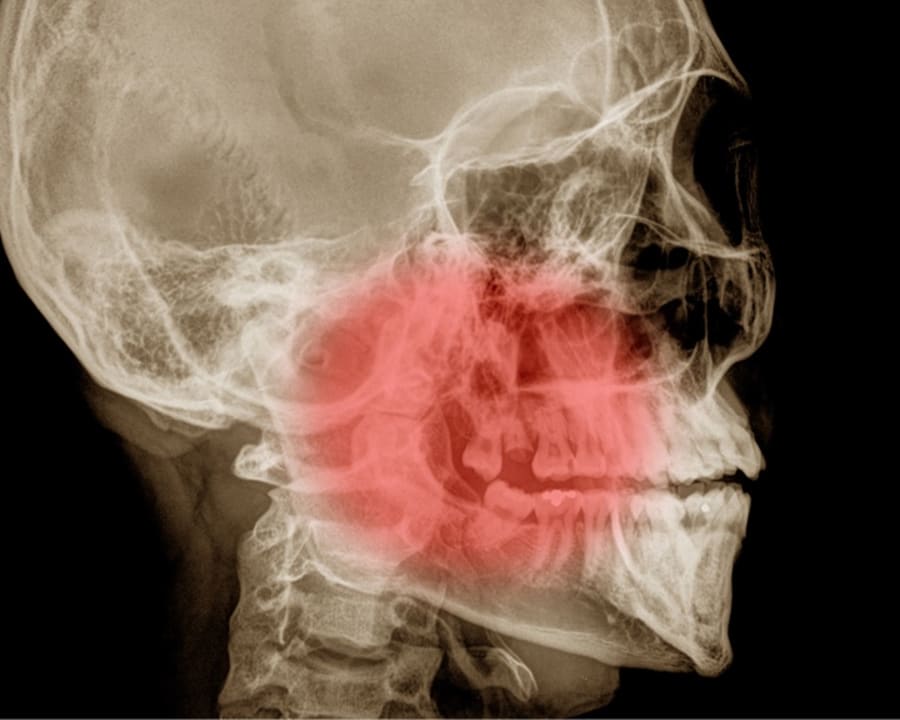
What is TMJ Disorder?
The TMJ (temporomandibular joint) is a hinge connecting your jaw to the temporal bones of your skull. It allows you to move your jaw up and down and side to side so you can talk and eat.
When your jaw joints are balanced and healthy, they support the proper movement of your mouth for comfortable speaking and eating. If your teeth and/or jaw become misaligned, TMJ Disorder (or TMD) can become a problem.
This disorder can cause symptoms such as jaw pain, ringing in the ears and headaches that significantly affect an individual's quality of life.
Fortunately, our orthodontists in Calgary & Canmore can treat TMD symptoms in children, teens, and adults. Depending on a patient's needs, treatment options may include bite splints, surgery and more.
Chronic Pain Treatment
Some patients have other chronic pain conditions along with TMD. Fortunately, we work with other specialized professionals who help with specific areas of the body, such as physiotherapists and chiropractors. Contact us to learn more about how we can help alleviate chronic pain.
Request AppointmentTMJ Disorder Treatment
Our orthodontists in Calgary & Canmore can test for, diagnose and provide a treatment plan for TMJ Disorder using a two-step treatment process.
Step 1
Special bite splints can be used to even out the bite and break up the protective reflex, allowing the muscles to relax and the jaw joint to seat itself properly in its socket. In some cases, this may take several months.
Step 2
Once the jaw joints are in their healthy position, one can see what the specific bite problem is — and correct it. The severity of the bite issue will determine the type of correction recommended. Approaches can range from a simple bite adjustment to reshaping teeth to orthodontic treatment and corrective bite surgery.
TMD & TMJ Symptoms
TMJ Disorder (TMD) can cause a host of painful symptoms because your compromised jaw muscles have to work extra hard to do their job. Common symptoms include:
- Jaw and facial pain
- Jaw joint pain, locking, restricted movement
- Degenerative changes in the jaw joint
- Ear symptoms: pain, fullness, ringing, dizziness
- Headaches and neck aches
- Clenching and/or grinding of teeth, with associated wear, tooth breakage, bone loss, receding gums, lost teeth
If you are experiencing any symptoms, contact us for a proper diagnosis from an orthodontist.
